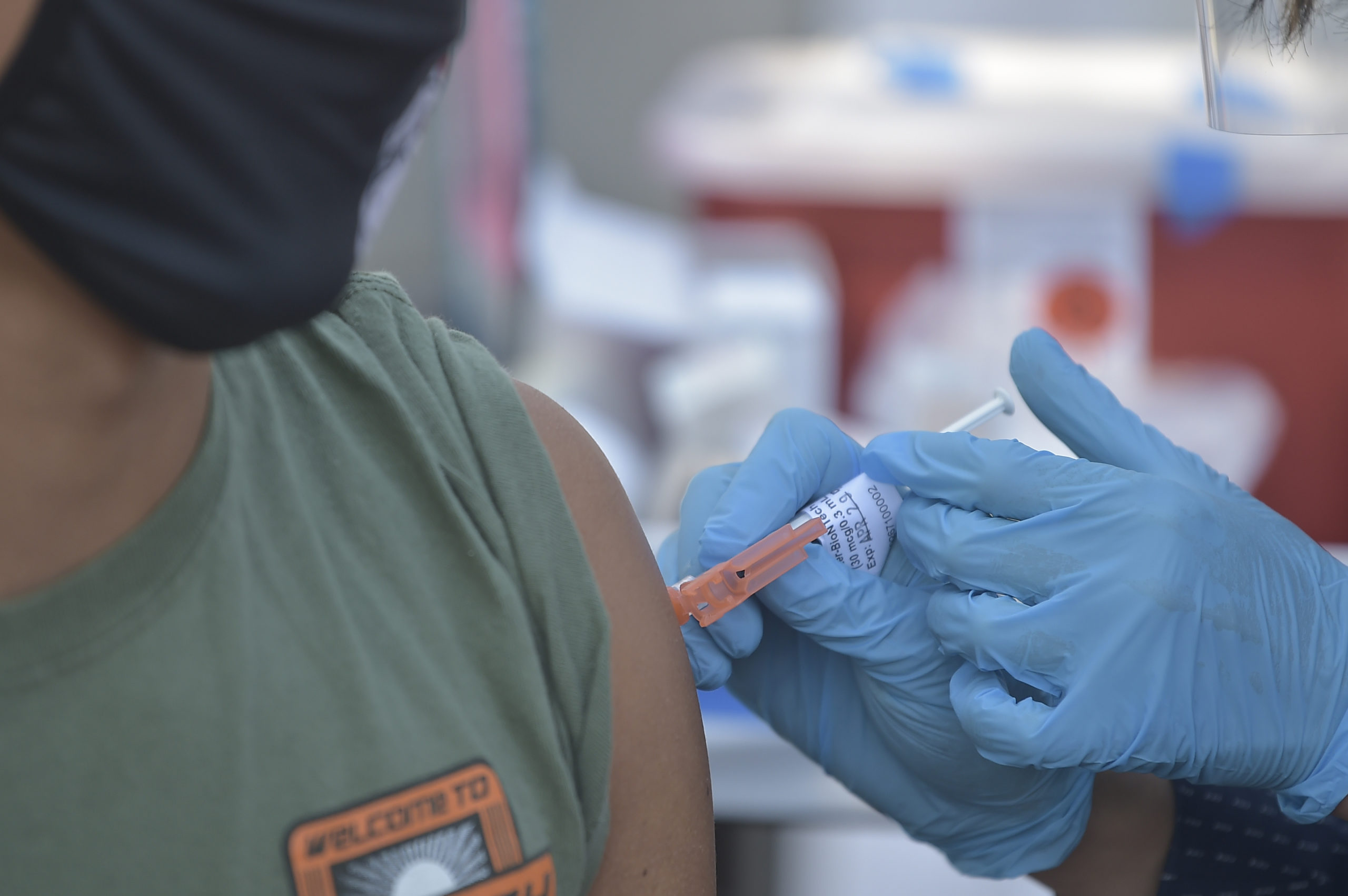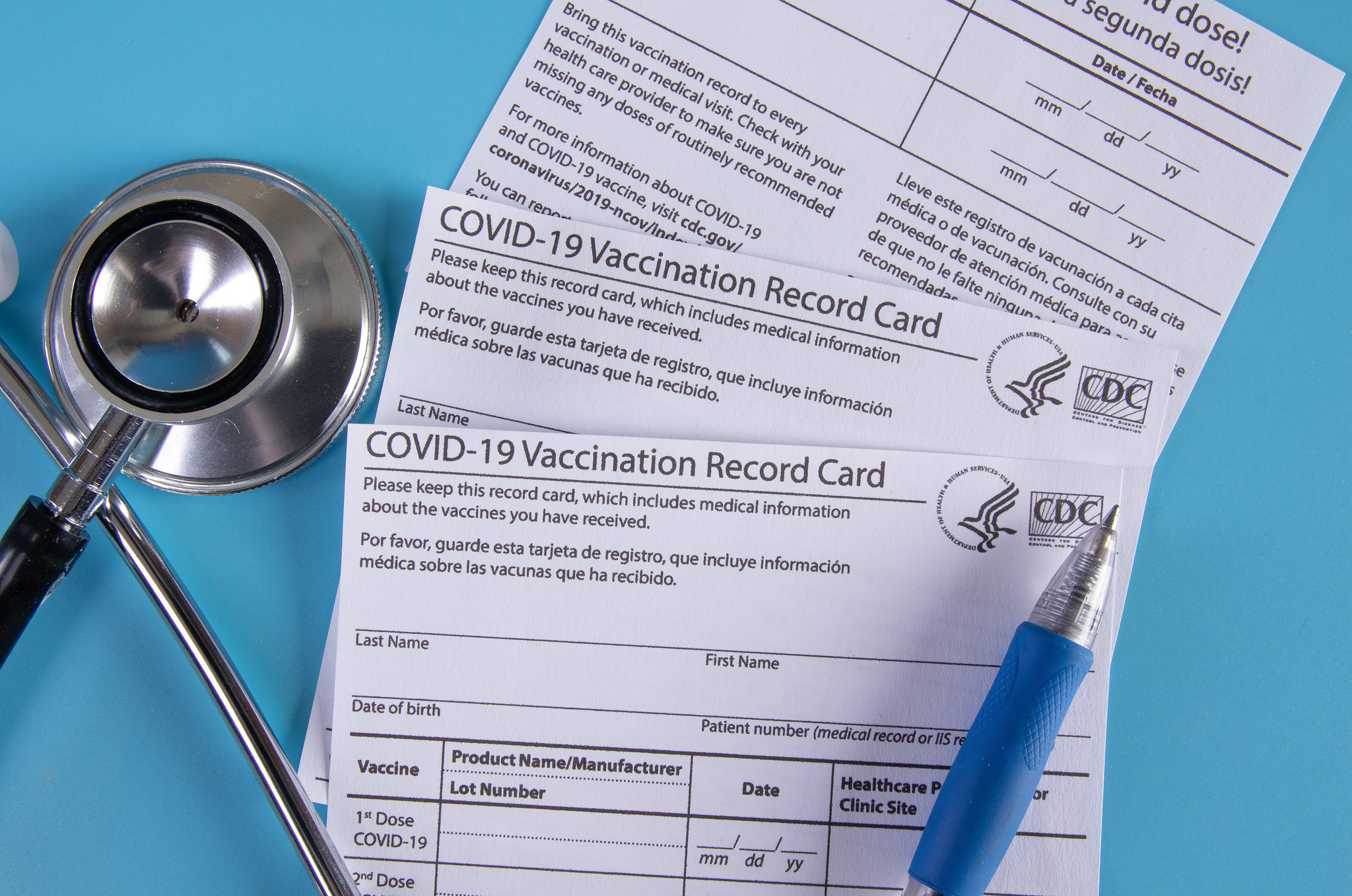The U.S. Food and Drug Administration on Monday gave Pfizer-BioNTech’s COVID-19 vaccine full approval, a milestone that officials hope will accelerate vaccination rates as the Delta variant continues to drive case numbers up.
“While this and other vaccines have met the FDA’s rigorous, scientific standards for emergency use authorization, as the first FDA-approved COVID-19 vaccine, the public can be very confident that this vaccine meets the high standards for safety, effectiveness, and manufacturing quality the FDA requires of an approved product,” said Acting FDA Commissioner Janet Woodcock in a statement. “While millions of people have already safely received COVID-19 vaccines, we recognize that for some, the FDA approval of a vaccine may now instill additional confidence to get vaccinated.”
The vaccine will now be marketed as Comirnaty (koe-mir’-na-tee), for people 16 years of age and older, according to the FDA. The vaccine continues to be available under emergency use authorization, including for children 12 to 15 years old and for a third dose in some immunocompromised people. The agency did not provide a timeline for a decision on the use of the vaccine for those under the age of 12.
In California, local officials hope authorization will lead to more people being vaccinated. According to a June survey from the Kaiser Family Foundation, three in ten unvaccinated adults said they would be more likely to get vaccinated if one of the vaccines were to receive full approval from the FDA. However, as researchers pointed out at the time, the data “likely suggests that FDA approval is a proxy for general safety concerns, as two-thirds of adults (including a large majority of unvaccinated adults) either believe the vaccines currently available in the U.S. already have full approval from the FDA or are unsure whether they have full approval or are authorized for emergency use.”
California Gov. Gavin Newsom, in a statement, said the FDA’s approval “further confirms that the Pfizer vaccine meets a rigorous, scientific standard for safety and efficacy, protecting against serious illness, hospitalization and death,” and encouraged the state’s residents to get vaccinated. “With more than 80 percent of Californians 18 and up having received at least one dose, our work continues to close the gap in our most impacted communities and bring an end to this pandemic,” Newsom said.
Los Angeles County Board of Supervisors Chair Hilda Solis said that for many who remain hesitant about the vaccine, full FDA approval is a key factor. “With this step, it is my hope that those who are still unvaccinated see that the safety and effectiveness of these vaccines have been proven yet again,” Solis said in a statement. “I also encourage businesses, healthcare facilities, schools, and other sectors who had been waiting for full FDA approval to follow the county’s lead and begin implementing vaccine requirements.”
The Pentagon did not wait with doing just that. Shortly after the FDA’s announcement, the Pentagon said it will require that service members receive the COVID-19 vaccine.
Vaccine hesitancy has been fueled by not only the lack of full FDA approval, but by misinformation often spread online. In its announcement Monday, the agency took the opportunity to explain what the vaccine does and does not do. The vaccine contains messenger RNA (mRNA), a kind of genetic material used by the body to make a mimic of one of the proteins in the virus that causes COVID-19, the FDA explained. “The result of a person receiving this vaccine is that their immune system will ultimately react defensively to the virus that causes COVID-19. The mRNA in Comirnaty [formerly known as the Pfizer vaccine] is only present in the body for a short time and is not incorporated into – nor does it alter – an individual’s genetic material. Comirnaty has the same formulation as the EUA vaccine and is administered as a series of two doses, three weeks apart.”
“Our scientific and medical experts conducted an incredibly thorough and thoughtful evaluation of this vaccine,” said Peter Marks, M.D., Ph.D., director of FDA’s Center for Biologics Evaluation and Research. “We evaluated scientific data and information included in hundreds of thousands of pages, conducted our own analyses of Comirnaty’s safety and effectiveness, and performed a detailed assessment of the manufacturing processes, including inspections of the manufacturing facilities.”
Pfizer-BioNTech’s submission of a biologics license application built on the data previously submitted that supported the EUA, such as preclinical and clinical data and information, as well as details of the manufacturing process, vaccine testing results to ensure vaccine quality, and inspections of the sites where the vaccine is made.







